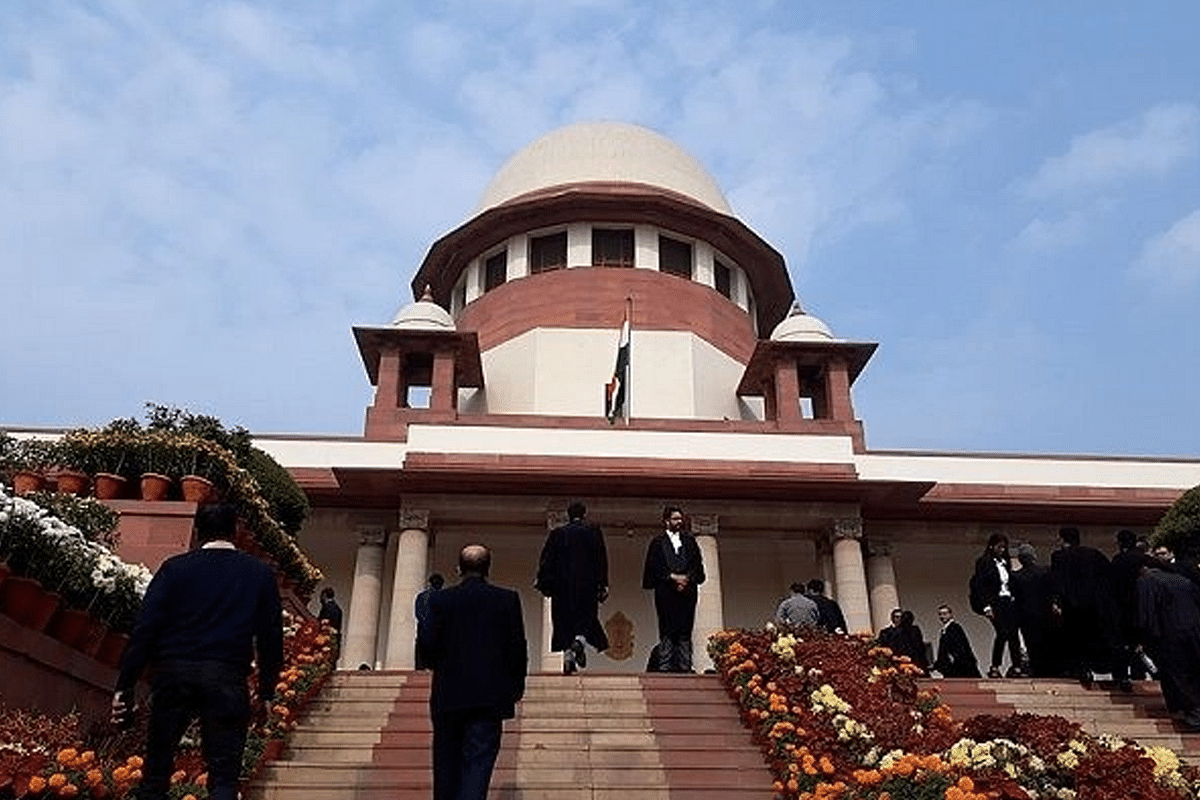News Headlines
What Supreme Court Said On Pleas Seeking Gender And Religion-Neutral Laws For Divorce

The Supreme Court of India. (Wikimedia Commons)
The Supreme Court will examine how far it can judicially intervene in making divorce proceedings — a gender and religion neutral process. It said that the final call vests with the government and the legislature, however.
The bench of Justice DY Chandrachud, CJI, said that it was for the government to decide and not for the court to look into issues such as removing anomalies for the grounds of divorce and make them same for all citizens of the country, without any distinction on grounds of gender, religion, race, case, sex or the place of birth.
The bench was hearing a petition filed by Ashwini Upadhyay, who was represented by Senior Counsel Gopal Sankaranarayanan, regarding a plea to frame uniform grounds of divorce for all citizens irrespective of their faiths.
On the other hand, the government was represented by the Solicitor General, Tushar Mehta who mentioned that the government had no objections to make the law on divorce a gender neutral process.
It is reassuring that the government and the judiciary are on the same page in bringing gender, religion neutral divorce laws.
While senior advocate, Kapil Sibal appearing for one of the parties, termed the suggestions for brining such amendments as omnibus, he agreed with the view that the issue should be left to the legislature to deliberate upon.
He stated that, “the court cannot be seen to be issuing even prima facie orders in this matter. It can send a kind of signal. This is entirely within the domain of the government and the legislature”.
The case has now been listed after four weeks, and the bench has sought details of the entire batch of petitions filled by different petitioners, contending different issues.
Interestingly, one of the petitions concern the practice of talaq-e-hasan; a form of divorce by which a Muslim man can divorce his wife by pronouncing talaq once every month for a three month period.
The petition filed by Benazeer Heena contended that unliateral forms of talaq including triple talaq is an evil similar to sati. It has been stated that, “Talaq-e-hasan is arbitrary, irrational and contrary to Articles 14, 15, 21 and 25 and international conventions on civil rights and human rights”.
It was argued that there should be a gender neutral, religion neutral and uniform procedure of divorce for all citizens of the country irrespective of their identities.
Introducing ElectionsHQ + 50 Ground Reports Project
The 2024 elections might seem easy to guess, but there are some important questions that shouldn't be missed.
Do freebies still sway voters? Do people prioritise infrastructure when voting? How will Punjab vote?
The answers to these questions provide great insights into where we, as a country, are headed in the years to come.
Swarajya is starting a project with an aim to do 50 solid ground stories and a smart commentary service on WhatsApp, a one-of-a-kind. We'd love your support during this election season.
Click below to contribute.
Latest